WASHINGTON (Army News Service, Oct. 1, 2008) - On the second and fourth Friday of every month, Walter Reed Army Medical Center here goes to the dogs.
The dozen or so dogs - and their owners - are pet therapy volunteers from the Red Cross with a special mission: to bring love, comfort and relaxation to wounded and ill Soldiers and family members undergoing treatment at the hospital.
They program has been going on for over a decade and medical officials say the dogs help patients forget about their surroundings and calm down for a few minutes.
"I love the dogs," said 1st Lt. Jennifer Flynn, a nurse in the neuroscience and physical medicine ward. "I love the dogs because they're such a bright spot when they come. They bring so much joy. It's not something you expect to see in the hospital. You're walking your patient, maybe having a rough day, and then this wagging tail and lolling tongue comes in and something changes. It just puts people at ease.
"They bring a sense of joy and peace. Sometimes they get up to the bed and the patient can touch them and you can see that it relaxes the patient, it helps relieve their stress and they forget for a second sometimes that they're in the hospital because there's a dog sitting there. It means so much to some of these guys. Some of the Soldiers spend months here and they have dogs at home or they grew up with dogs and it really helps to put you at ease," she continued.
Molly, a 13-year-old Cavalier King Charles Spaniel, has been visiting Walter Reed for about nine years. She's perfect for the job, said owner Jocelyn White, because she loves everyone and is small enough for White to pick her up so patients can pet her from their beds. She said that sometimes she holds Molly so long that her arms are ready to fall off because patients can't get enough of her.
"Patients have said, 'You've just raised the morale in here so much. You have no idea what this does for me,' giving them a chance to be with a dog when they miss their own dog, having that love and attention and petting you give to the dog and then the dog loving them. It's a wonderful experience for them. And a lot of them have their families and children in there and their children also just love seeing these dogs," White said.
One lady missed her own dog so much that she burst into tears when Molly and her partner, a three-year-old black Lab named Rocky, went into her room.
"It's a cute surprise," said 2nd Lt. Robert Holiday of the 101st Airborne, who was at Walter Reed for surgery. "I was just telling someone about my dog back home. It's always nice to see anything living. Especially dogs. Most people have good memories. It's just nice."
"I think patients get a lot out of it," said Pam Dooley, Rocky's owner. "It's just an opportunity to have some physical contact. Some people really miss petting their dogs that they have at home. So there's that. I think dogs are really nonjudgemental and they get completely excited to see anyone here and they're not looking at their wounds, not looking at anything except, 'Am I going to get a little love and attention from this person''"
The dogs, Dooley and White agreed, love coming as well because they get so much attention.
White said Molly always recognizes the special bandana identifying her as a Red Cross dog and spins in circles when White takes it out, barking and running to the door. For his part, when Rocky gets to Walter Reed, he knows he's there for a reason, Dooley added.
The two-hour visits can often be exhausting for the dogs, however. Dooley said Rocky usually spends the rest of the day sleeping after they get home from WRAMC.
The two women also agreed that it was very important that the dogs come regularly because patients get attached and look for the dogs on those Fridays. White and Molly were spending one winter in Florida when a sick little girl who had become very attached to Molly took a turn for the worse. Her last wish was for Molly to come and be with her. Another dog ended up visiting the little girl, but White sent a picture of Molly dressed for the beach to cheer her up.
And the dogs aren't just for the patients. They're also a way for the hospital staff, many of whom see tragedy on a regular basis, to relax. Doctors, nurses, administrators and technicians alike come looking for the dogs.
"We do see a lot of rough things, but it helps us forget about things," said Flynn. "I always look forward to seeing the dogs. I see the dogs come up the hall and I stop what I'm doing." She added that she collects the "baseball cards" the owners carry of their dogs. Many of the nurses and patients display the cards on bulletin boards and in rooms throughout the hospital.
For more information about Walter Reed and other Red Cross pet therapy programs, contact the Washington Red Cross office.
(Editor's Note: This is the second report in a series about how dogs are helping Soldiers heal.)
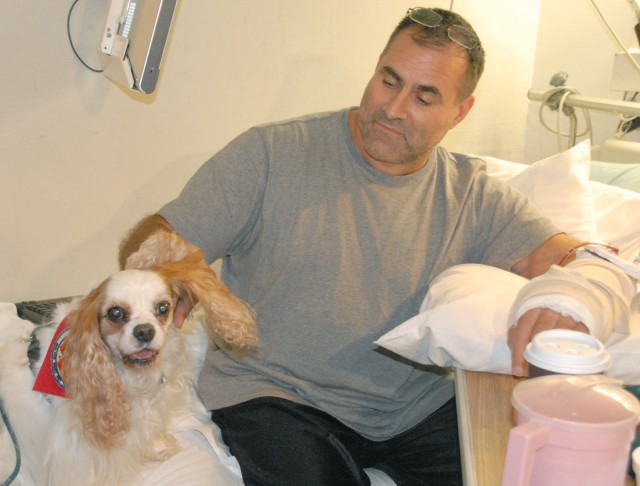
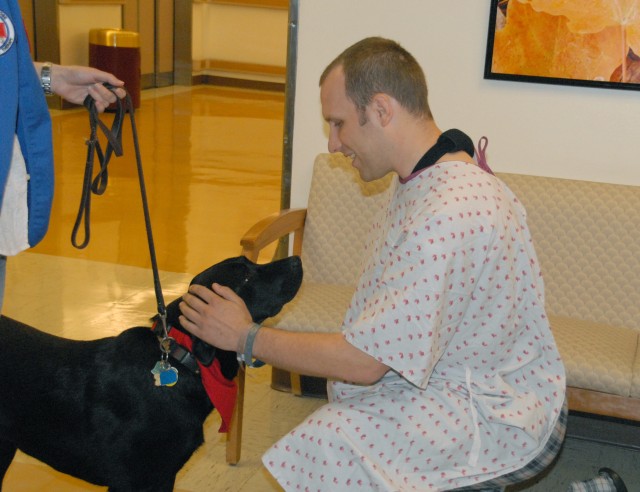
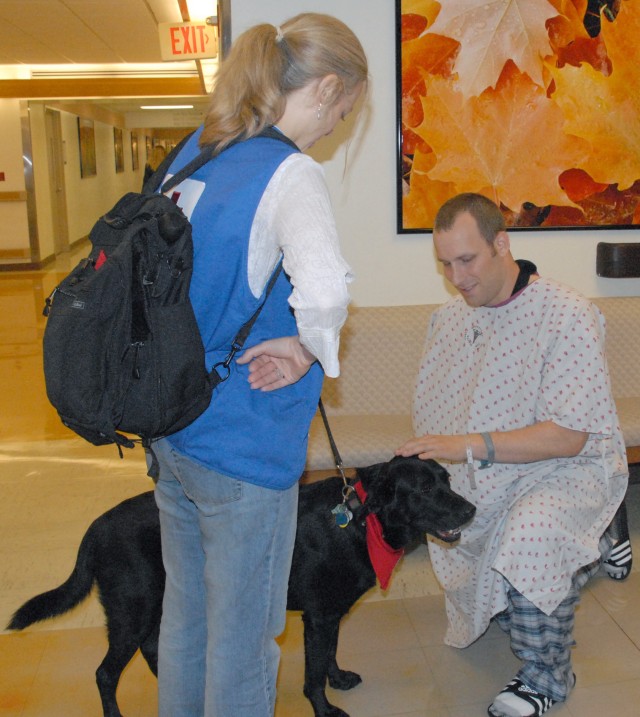
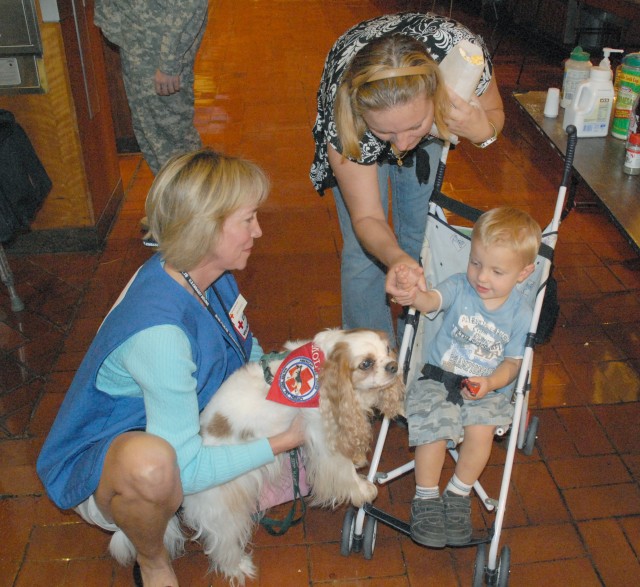
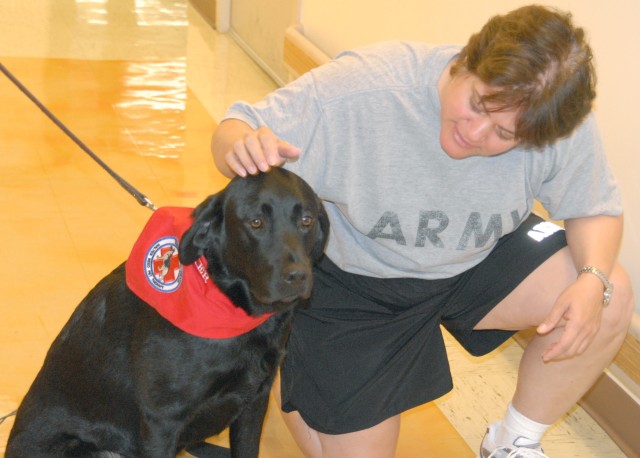
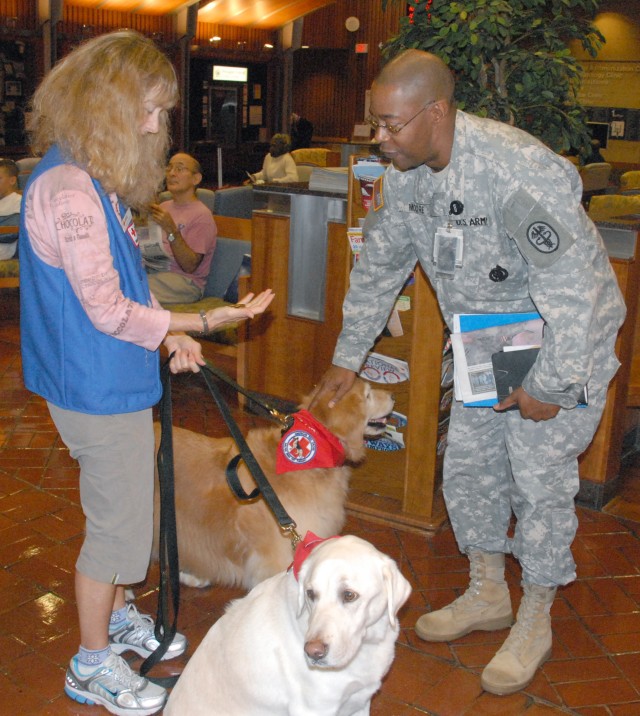
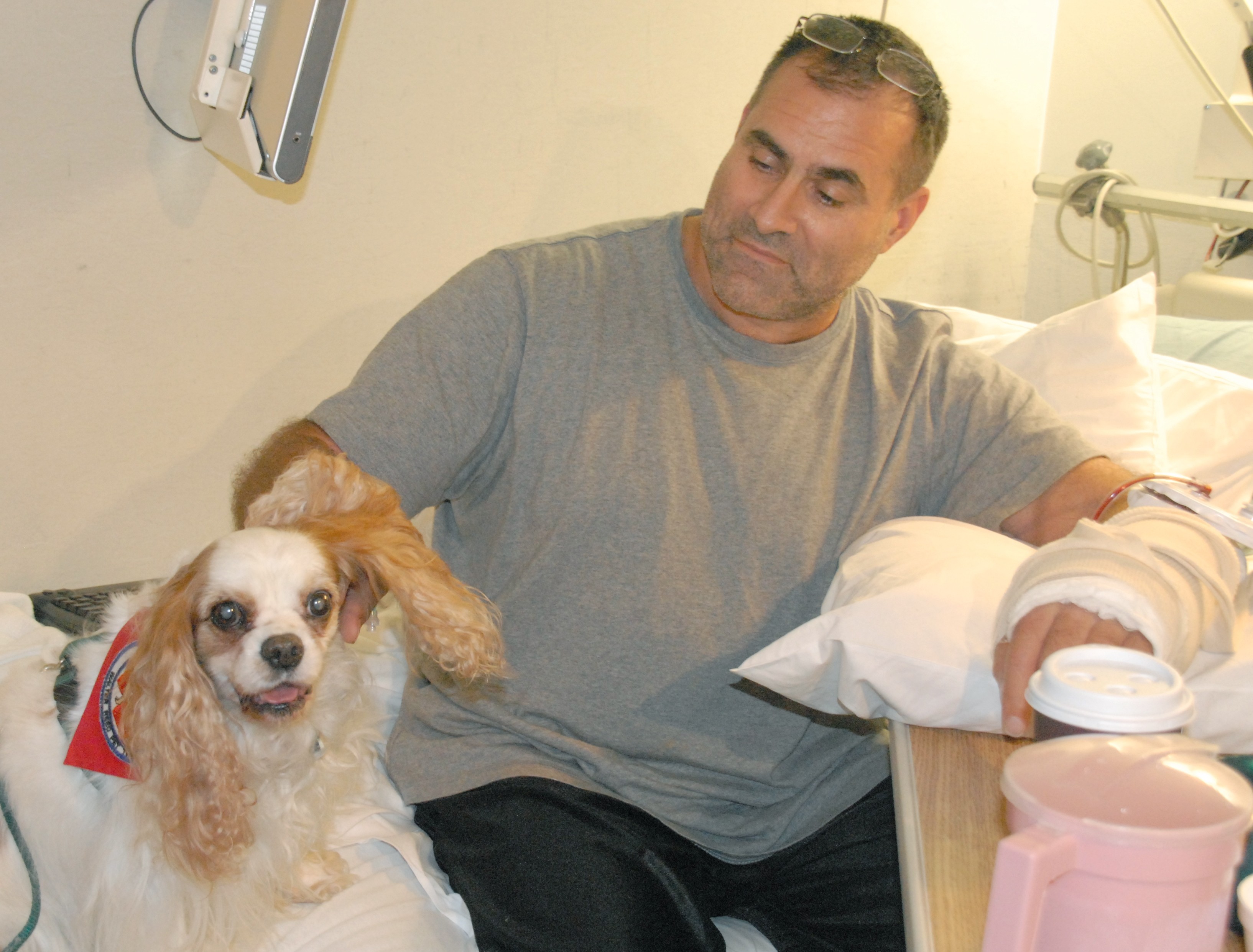
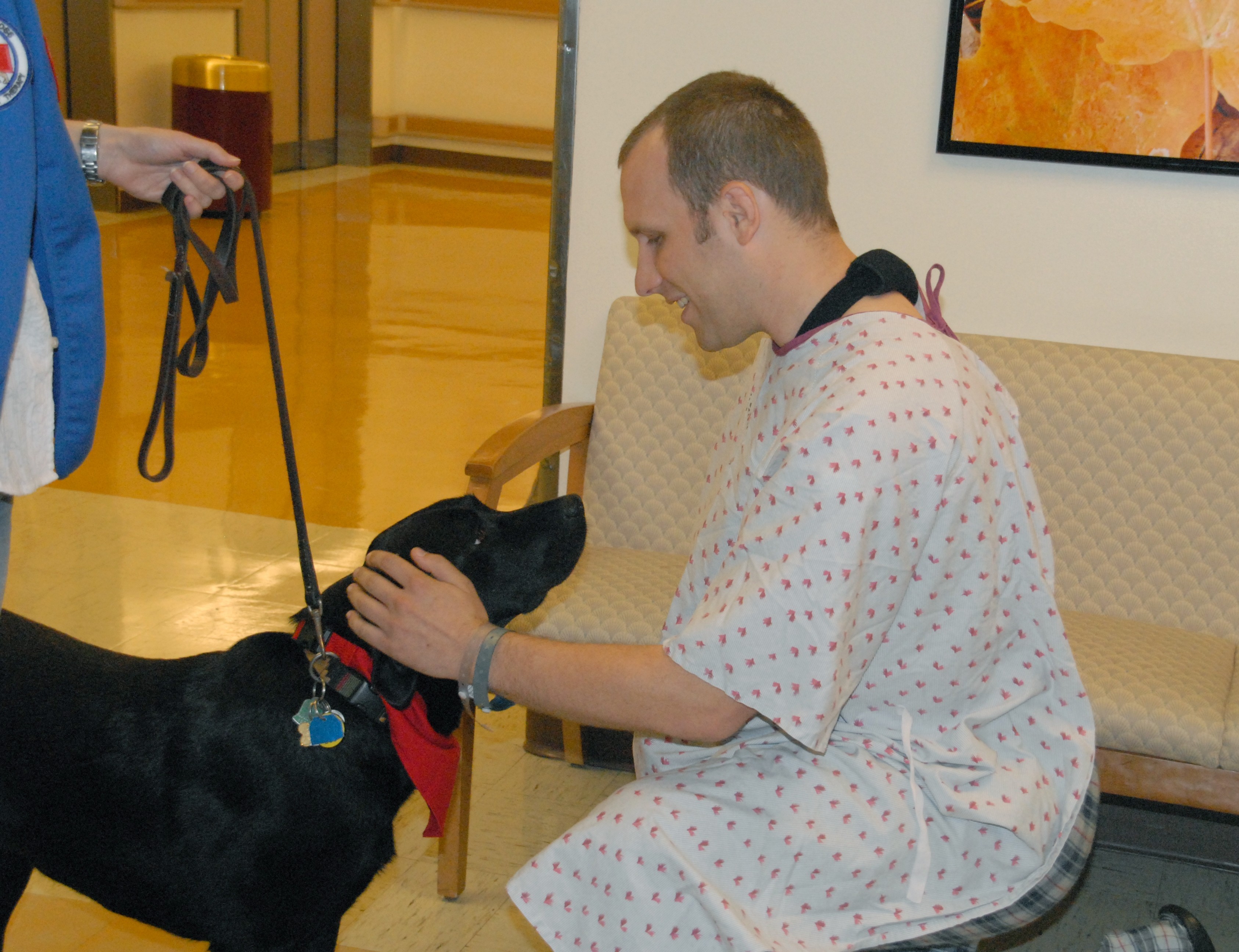
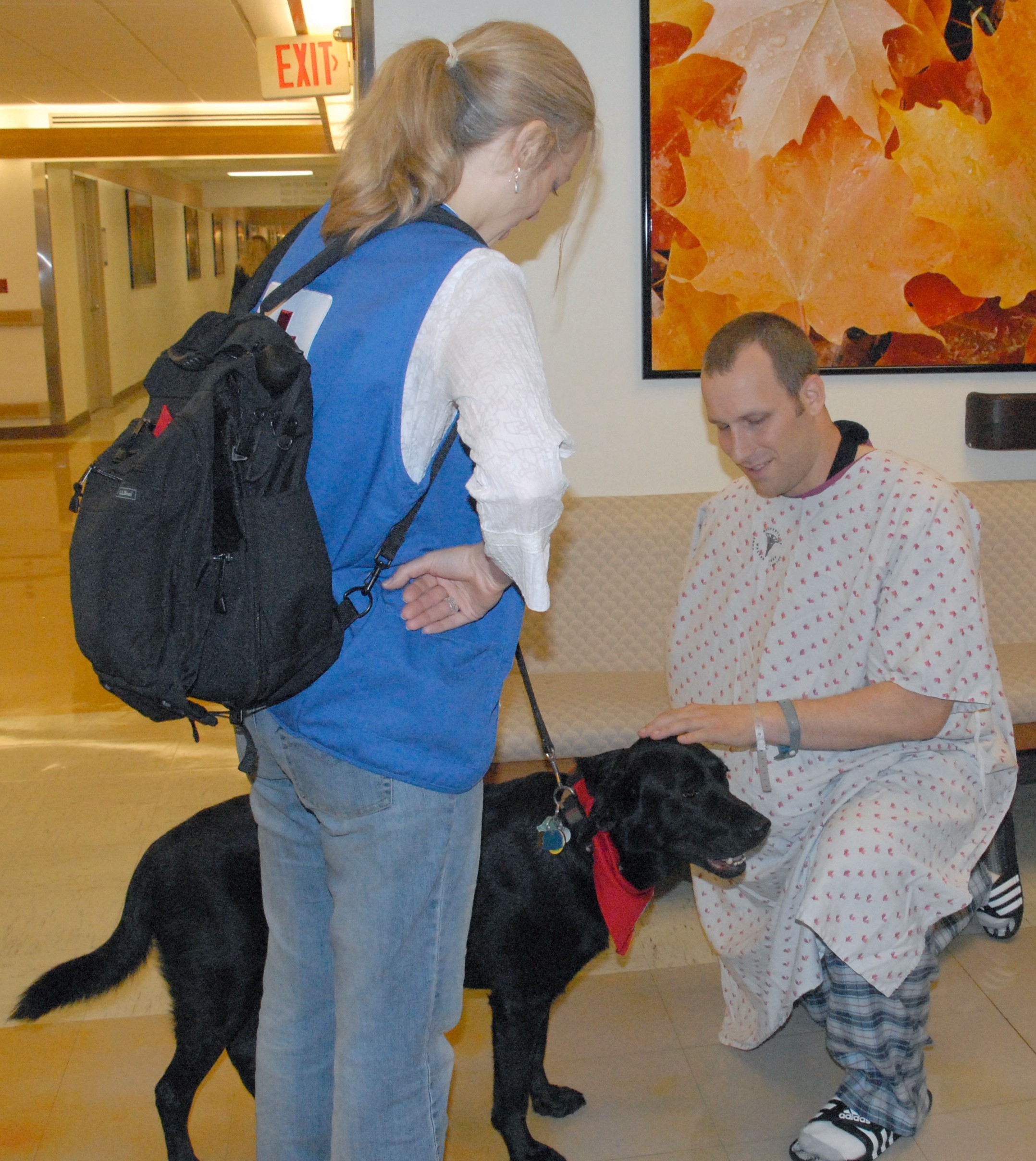
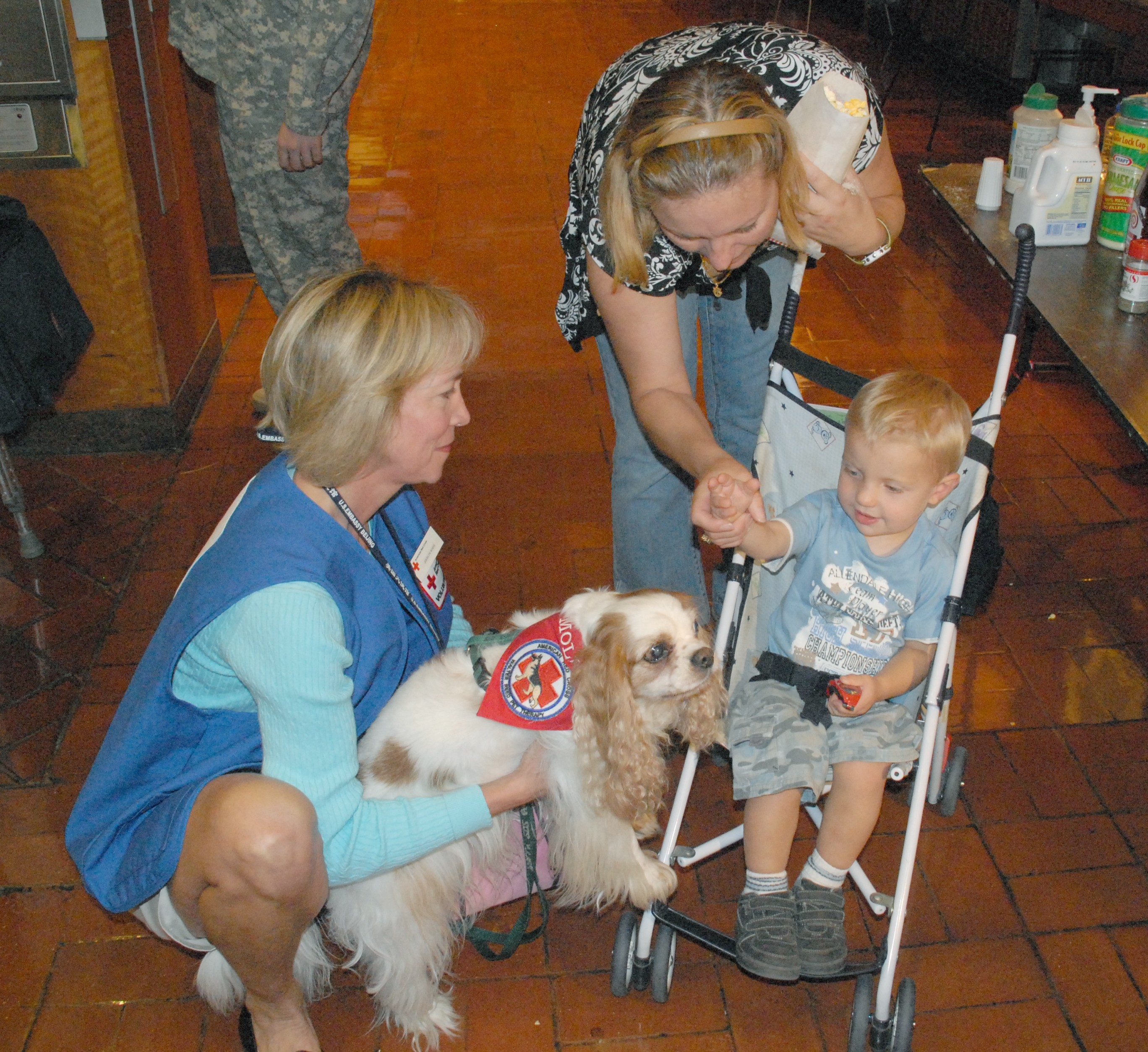
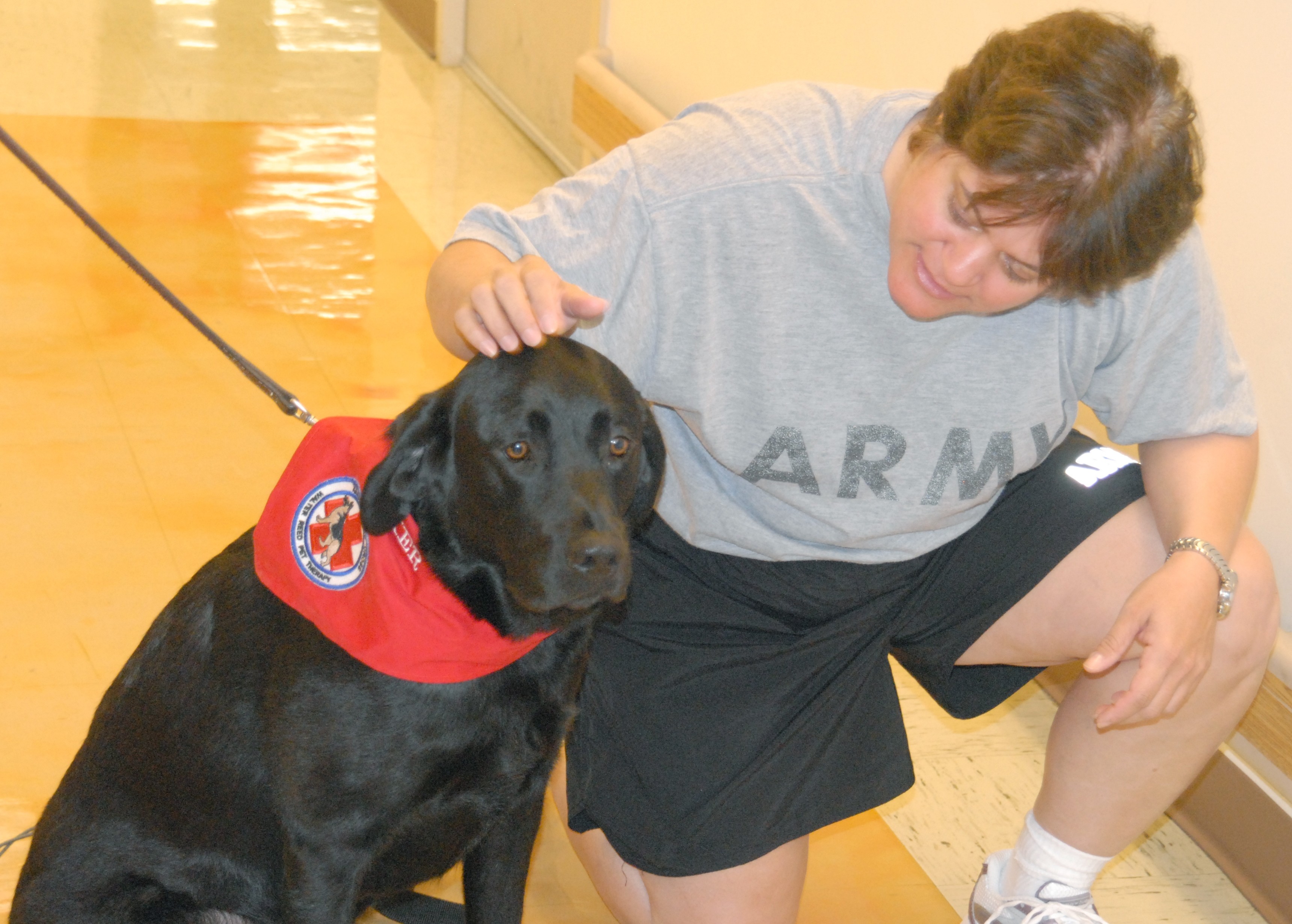
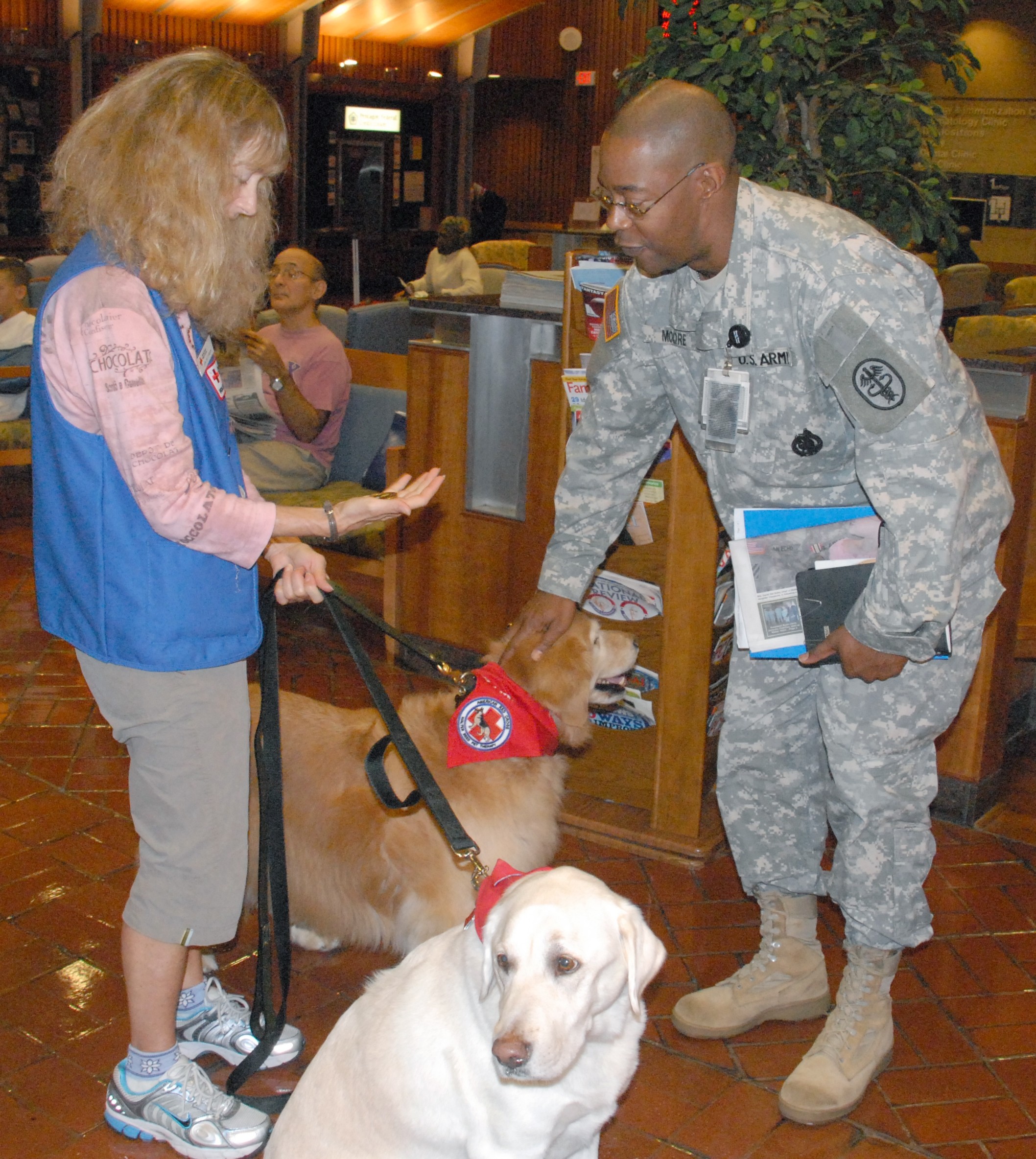
Social Sharing